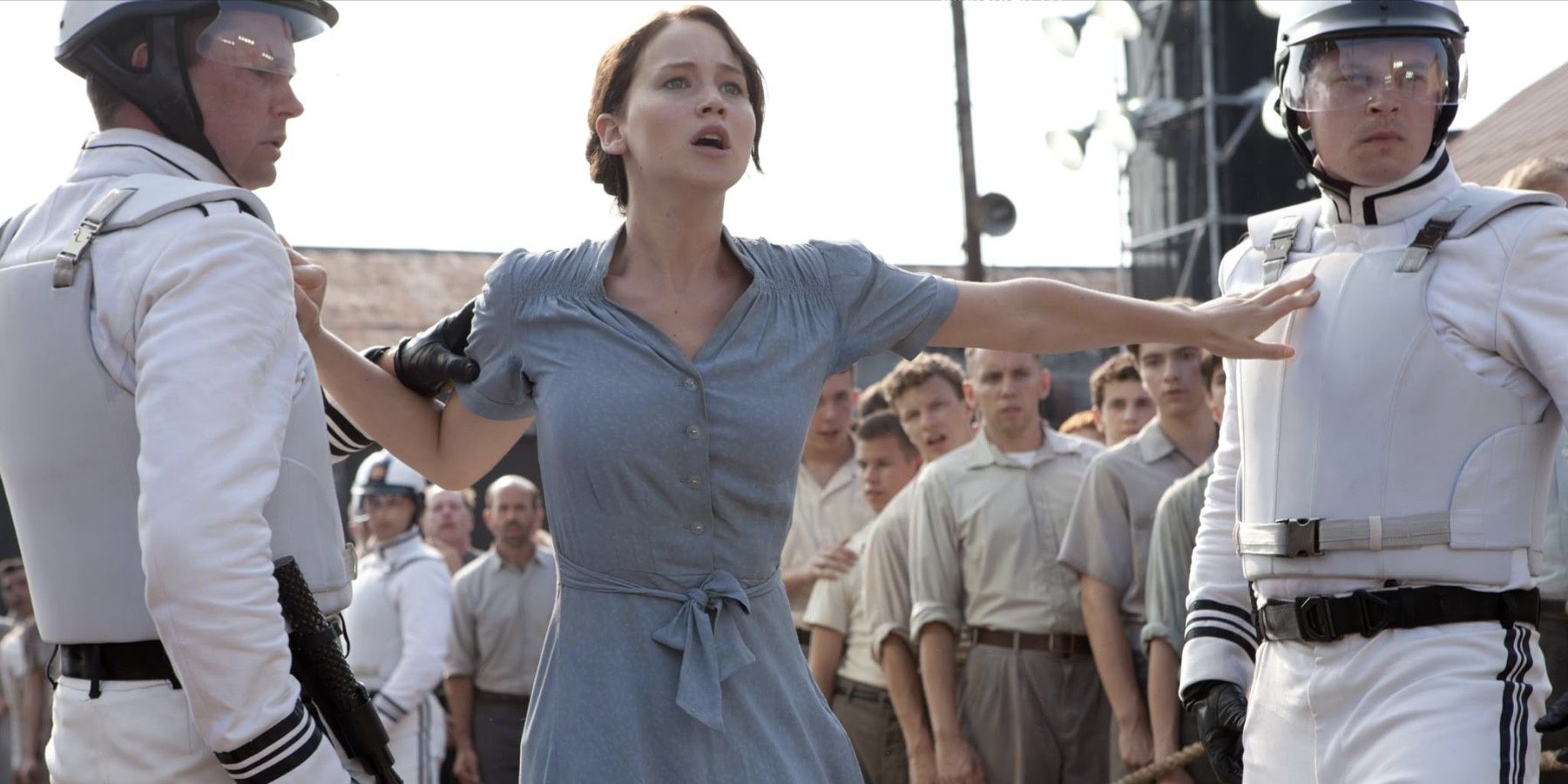The Hunger Games is the flagship title of the young adult dystopia genre. As such, it tells its story in straightforward terms. The oppressive Capitol keeps its subjects in line by feeding teenagers into a televised blood sport. Every young District citizen could have an equal chance at entering the Games, but that wouldn't appropriately punish the impoverished. To ensure the weakest carry the heaviest burden, the Capitol lets people trade their children's safety for food through the Tessera program.
The "Hunger" in The Hunger Games can be a bit misleading. The eponymous event seems to suggest cannibalism as a potential factor, if not the main draw of its public broadcast. Early tributes were starved before the Games and returned to their miserable lives after their victory. Instead, hunger is the motivator that pushes some tributes into the arena.
What is tessera in The Hunger Games?
The people of the Districts struggle to make ends meet while the decadent Capitol revels in incomparable wealth. A few citizens run businesses or earn a decent living, but thousands push through poverty and risk starvation. The Capitol offers no support network to keep civilians afloat. Charity is rare, leaving countless innocent people without a solution. Tessera is the pressure valve that allows poor District citizens to survive. Only children between 12 and 18 years old can sign up for tesserae. Each time they agree to the deal, they receive enough grain and oil to feed a person for a year. They can sign up multiple times to keep every family member from starvation. Though many District citizens resorted to illegal hunting or theft to survive, tessera was the only option for most. Poor Districts like 11 and 12 took more than 800,000 tesserae per year. Districts 1, 2, and 3 have enough money to keep their tessera numbers in the low four digits. They restrain themselves because the cost of tessera is high. Every time an applicant signs up for tessera, their name is again entered into the Hunger Games draw.
Hunger Games tributes are randomly selected from a glass ball of paper slips at an event called the reaping. All things being equal, everyone in the age group would have an even chance of entering the Games. Tessera changes the stakes, guaranteeing the impoverished suffer for every piece of grain they accept. It places the blame partially on the family, adding psychological torment to the arrangement. Tesserae never go away, ensuring their name would enter the reaping each year. If a teenager signed up for tesserae every year to get enough grain for both of their parents, they would multiply their chance of being selected as a tribute by twelve. Those numbers get out of control when dealing with larger families, leaving some young people with twenty or thirty entries in the reaping. Even with the increased risk, many saw tesserae as a chance for salvation. Starvation was a guarantee, but even with dozens of slips in the running, many were lucky enough to make it through six reaping ceremonies without being selected. Katniss described her relationship with tessera like this:
I kept telling myself if I could only hold out until May, just May 8th, I would turn twelve and be able to sign up for the tesserae and get that precious grain and oil to feed us.
The significance of tessera in the story
Tessera has little impact on The Hunger Games but is a critical feature in the main characters' lives. Katniss Everdeen and her friend Gale Hawthorne discuss their chances in the reaping before the event. Katniss accepted tesserae for herself, her mother, and her younger sister every year since she came of age. She enters the 74th Hunger Games with 20 entries. Gale, 18 and approaching his final ritual, has taken the same deal for himself, his mother, and his three siblings. He enters the drawing with 42 chances to lose. Peeta Mellark, the son of a baker, never needed tessera. Despite only having one slip in the ritual ball, the odds weren't in his favor, and Peeta becomes District 12's male tribute. Katniss experiences a similar unlikely disappointment, watching Effie Trinket avoid all 20 of her slips to pick her sister Primrose's lone entry. Katniss volunteers as tribute, and the rest is history.
Tessera is a nightmarish deal that forces families to gamble with their children's lives in exchange for the bare necessities of survival. It's a cruel gambit, but taking tesserae never resulted in a child being selected as a tribute in the story. The Hunger Games borrows heavily from dystopian stories like Battle Royale, but the tessera is one of Suzanne Collins' most intelligent new elements. As cruel as the Games are, they only materially harm a handful of children and their families. Forcing innocent kids and parents to weigh their risk of almost certain death against their desire for food is a punishment that affects every citizen in the Districts.






